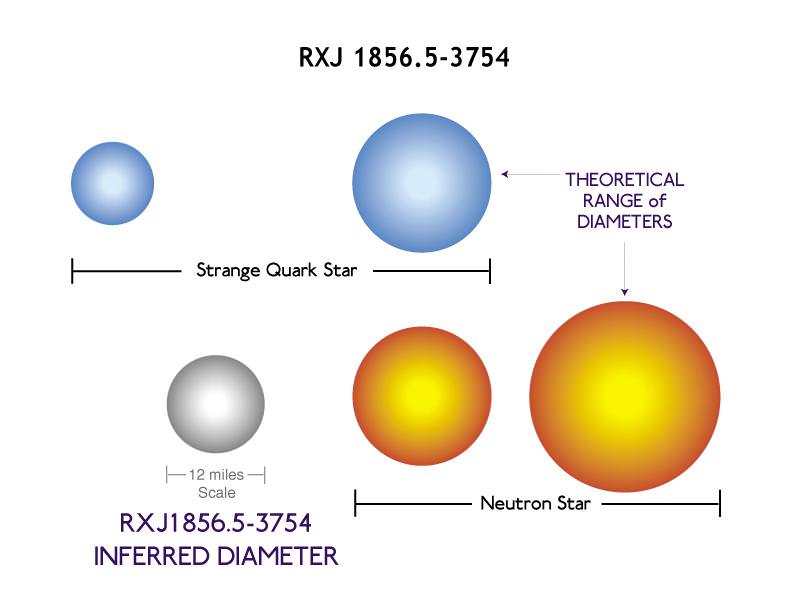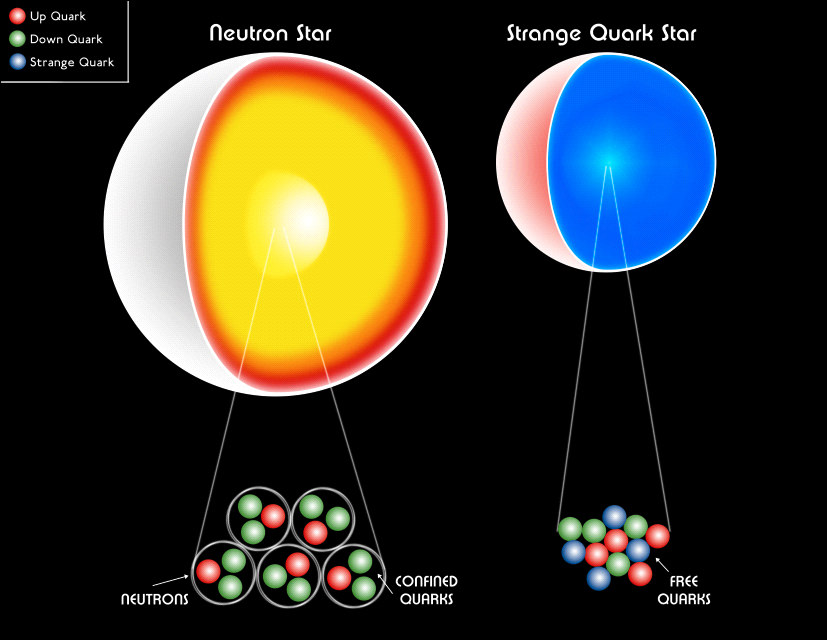Why the LHC might have destroyed the Earth
Posted: Sun Aug 08, 2010 1:04 pm
Why the LHC might have destroyed the Earth
______ by producing STRANGELETS:
______ by producing STRANGELETS:
Click to play embedded YouTube video.
http://www.universetoday.com/70111/astronomy-without-a-telescope-strange-stars/#more-70111 wrote: Astronomy Without A Telescope – A ‘naked’ strange star
Posted in: Astronomy, Physics by Steve Nerlich
<<Atoms are made of protons, neutrons and electrons. If you cram them together and heat them up you get plasma where the electrons are only loosely associated with individual nuclei and you get a dynamic, light-emitting mix of positively charged ions and negatively charged electrons. If you cram that matter together even further, you drive electrons to merge with protons and you are left with a collection of neutrons – like in a neutron star. So, what if you keep cramming that collection of neutrons together into an even higher density? Well, eventually you get a black hole – but before that (at least hypothetically) you get a strange star.
The theory has it that compressing neutrons can eventually overcome the strong interaction, breaking down a neutron into its constituent quarks, giving a roughly equal mix of up, down and strange quarks – allowing these particles to be crammed even closer together in a smaller volume. By convention, this is called strange matter. It has been suggested that very massive neutron stars may have strange matter in their compressed cores.
However, some say that strange matter has a more fundamentally stable configuration than other matter. So, once a star’s core becomes strange, contact between it and baryonic (i.e. protons and neutrons) matter might drive the baryonic matter to adopt the strange (but more stable) matter configuration. This is the sort of thinking behind why the Large Hadron Collider might have destroyed the Earth by producing strangelets, which then produce a Kurt Vonnegut Ice-9 scenario. However, since the LHC hasn’t done any such thing, it’s reasonable to think that strange stars probably don’t form this way either.
More likely a ‘naked’ strange star, with strange matter extending from its core to its surface, might evolve naturally under its own self gravity. Once a neutron star's core becomes strange matter, it should contract inwards leaving behind volume for an outer layer to be pulled inwards into a smaller radius and a higher density, at which point that outer layer might also become strange… and so on. Just as it seems implausible to have a star whose core is so dense that it’s essentially a black hole, but still with a star-like crust – so it may be that when a neutron star develops a strange core it inevitably becomes strange throughout.
Anyhow, if they exist at all, strange stars should have some tell tale characteristics. We know that neutron stars tend to lie in the range of 1.4 to 2 solar masses – and that any star with a neutron star's density that's over 10 solar masses has to become a black hole. That leaves a bit of a gap – although there is evidence of stellar black holes down to only 3 solar masses, so the gap for strange stars to form may only be in that 2 to 3 solar masses range.
The likely electrodynamic properties of strange stars are also of interest. It is likely that electrons will be displaced towards the surface – leaving the body of the star with a net positive charge surrounded by an atmosphere of negatively charged electrons. Presuming a degree of differential rotation between the star and its electron atmosphere, such a structure would generate a magnetic field of the magnitude that can be observed in a number of candidate stars. Another distinct feature should be a size that is smaller than most neutron stars. One strange star candidate is RXJ1856, which appears to be a neutron star, but is only 11 km in diameter. Some astrophysicists may have muttered hmmm… that’s strange on hearing about it – but it remains to be confirmed that it really is.>>

